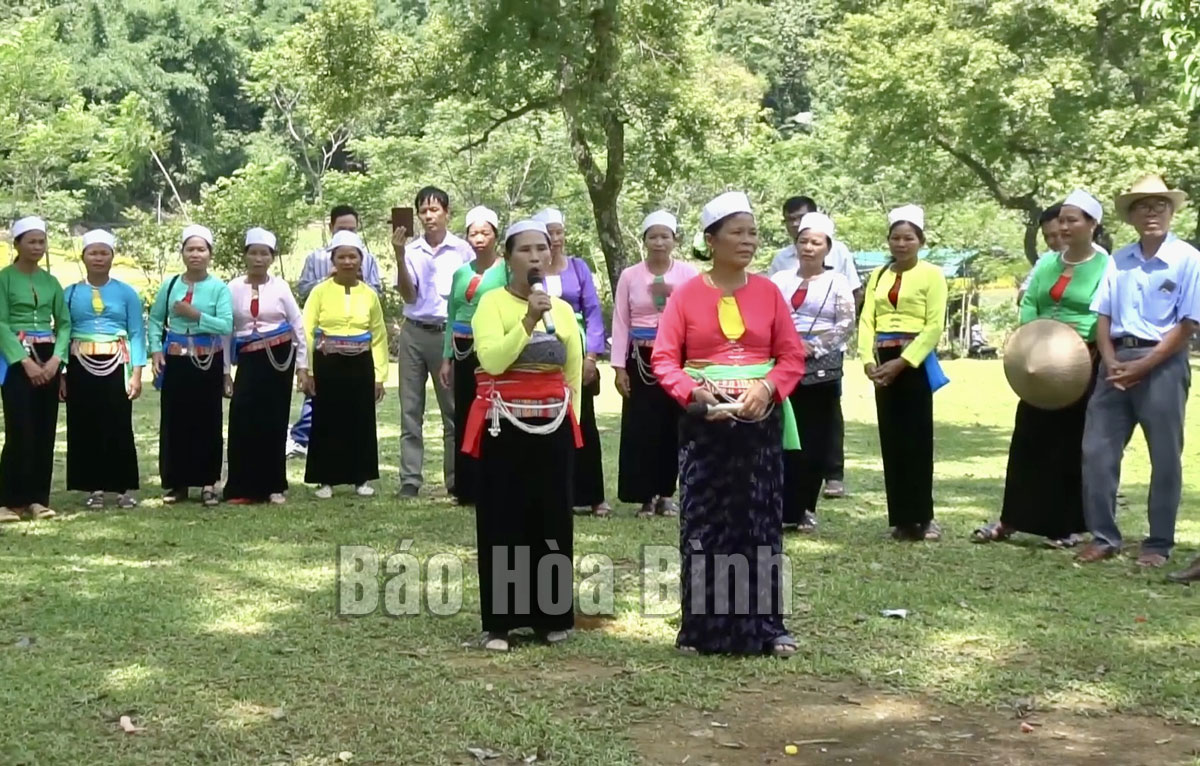(HBO) –The Muong Khu singing club officially debuted in September 2022, becoming the "common home" of those who have a special love for singing in the Muong ethnic language.
Members of the Muong Khu singing club gather at Bai Bui
tourist site in Ngoc Son commune, Lac Son district.
As a passionate initiator of the "common home”, Bui Van Hanh, Chairman of
the Muong Khu singing club, said since his youth, he has been fascinated by
watching and listening to folk singing. The rhythmic melodies, folk songs, and
harmonious duets have deeply resonated within him. Later, when joining in
various cultural exchange activities, he met many people who shared the same
passion with him. Then he sparked the idea of gathering artists and enthusiasts
of Muong singing in Muong Khu to contribute to preserving and upholding ethnic
cultural heritage.
Initially, the club had 10 members, and it has so far attracted 24 who are all
from the Muong ethnic group. Among them, five artists are Party members, with
the oldest born in 1954 and the youngest, in 1983. The club holds monthly
activities and has built its own plans and regulations. It also regularly
exchanges with other clubs within and outside the province. To date, the club
has conducted hundreds of exchanges with Muong singing clubs in Lac Son, Cao
Phong, Tan Lac, Yen Thuy districts, as well as Thanh Hoa and Ninh Bình
provinces.
Since 2021, the club's activities have taken a new step with the launch of the
YouTube channel "Hat tieng Muong Hoa Binh" (Singing in Muong
language, Hoa Binh province). The venues for exchanges and recordings are
usually tourist sites such as Bai Bui in Ngoc Son commune and Mu waterfall in
Tu Do commune. The YouTube channel has received warm support and enthusiastic
response from online community and the Muong ethnic group in particular,
contributing to preserving and spreading the beautiful values of Muong folk songs
on the mass media.
According to Hanh, Muong singing is often performed on happy occasions such as
weddings, birthdays, celebrations for children, and housewarmings. The duet
singing involves interaction between men and women, and people from different villages
use songs to express their emotions when they meet.
Recently, Hanh and the club members have been invited by schools in the
district to extracurricular programmes to share and help students gain a better
understanding of Muong folk songs. Additionally, the club has set up a saving
fund for families of its members, following a non-interest revolving method to
ensure the livelihoods of the artists.



